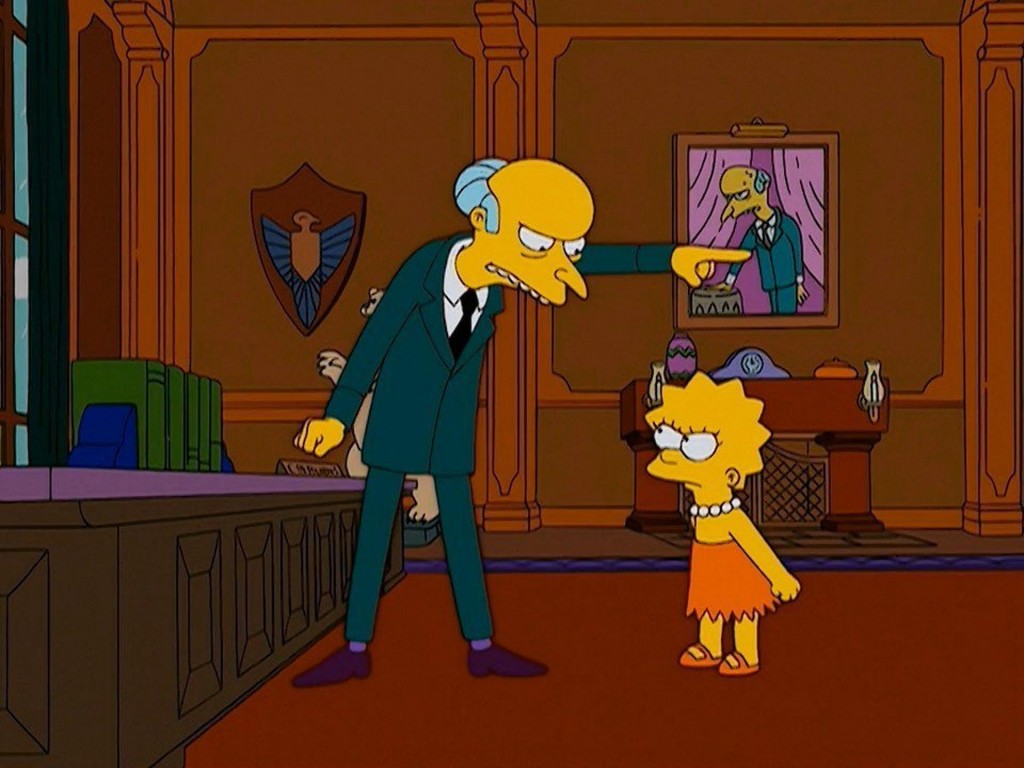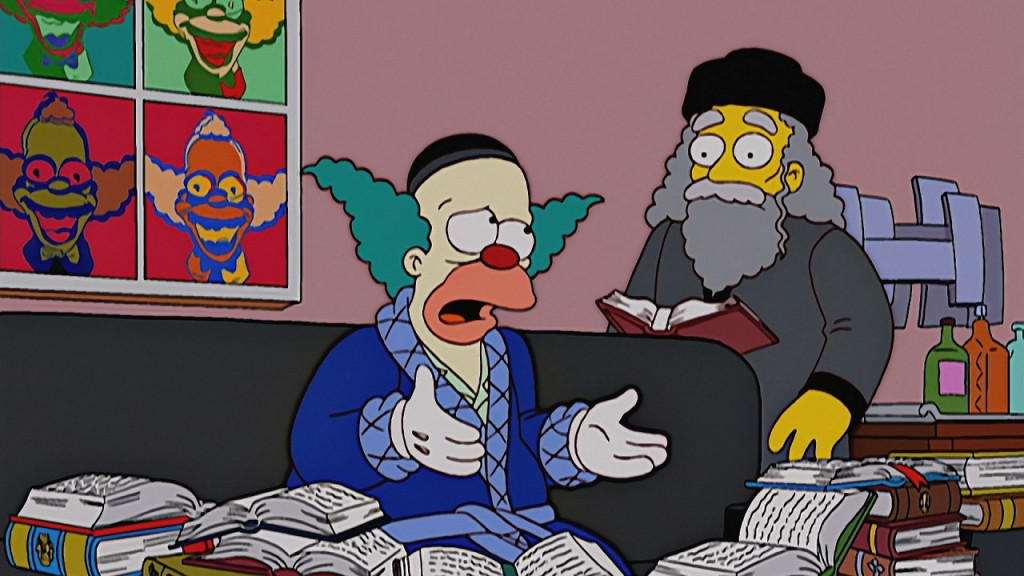-
Recent Posts
- Better Call Saul: There Are No Happy Endings between a “Rock and Hard Place”
- Black Widow Keeps It in the Family for Natasha’s Last Ride
- Loki Finds New Purpose in the Man behind the Mischief
- In its Debut, Star Wars: The Bad Batch Decides Whether to Obey or Rebel
- Nomadland: A Film Out of Time, For Our Times
Archives
Recent Comments
- Ed Clarke on Contact
- Matt on Why “The Frying Game” Is a Dark Horse Contender for The Simpsons’s Worst Episode Ever
- Lilly Dow on Contact
- Stacey on Veep’s Series Finale and the Hollowness of Getting What You Want
- Evan Jaocbs on Contact
Meta
Tag Archives: Episode Reviews
Better Call Saul: There Are No Happy Endings between a “Rock and Hard Place”
It’s a fool’s errand to wish for happy endings in the world of Better Call Saul. But I had a faint bit of hope for Nacho Varga. I thought maybe, just maybe, he would find some way to get out. He could leave this life behind and start again with his father by his side. I even imagined Jesse Pinkman arriving in Alaska years later and meeting Ignacio under an assumed name. Wouldn’t that be nice? Mike’s two surrogate sons coming together, looking after each other the way he might have done himself.
(more…)Loki Finds New Purpose in the Man behind the Mischief

What would you do if you went through life convinced that you were “burdened with glorious purpose” when you were, in fact, just another cog in the machine? What would you do if you found out the artifacts of power you so desired were mere trinkets that other folks used as paper weights? What would you do if you believed you were in control of your own destiny, only to discover that you are the plaything of greater beings whose life story has already been written? And what would you do if you thought you were the protagonist, only to realize that you are a mere springboard to help others become their best selves?
It would probably drive you to do some soul searching. What I like about Loki in its opening stanza is that the show is equal parts meta, goofy, and existentialist in the shadow of these big questions. There’s not a lot of action in the series’s debut. Instead, there’s a lot of table-setting, throat-clearing, and conversation. But this first episode, aptly titled “Glorious Purpose”, ably sets the tone for Marvel Studios’ new villain-fronted series. The vibe is irreverent to be sure — as befits the “mischievous scamp” at its center — but also willing to delve into personal pain and deeper self-examination that feels just as true to the MCU’s trickster god.
Posted in Marvel Television Shows, Television
Tagged Episode Reviews, Loki, mad men, Marvel, Marvel Cinematic Universe, Owen Wilson, Tom Hiddleston
Leave a comment
In its Debut, Star Wars: The Bad Batch Decides Whether to Obey or Rebel

From the beginning, Star Wars’ iconography featured the motley, earth tone-draped freedom fighters of the Rebellion against the pristine, black-and-white perfection of the Empire. Before the audience ever knew the details of the conflict at hand, this imagery told us everything. The rigid, overpowering force of the film’s Imperial villains contrasted with the shaggier, freethinking rebels who dared to oppose them.
Star Wars: The Bad Batch follows in those vaunted footsteps. The series — from Star Wars animation impresario Dave Filoni, head writer Jennifer Corbett, and supervising director Brad Rau — frames itself as a contrast between the wilds of personal choice and the strictures of mandated conformity. As the Empire emerges from the ashes of its predecessor, those who fought for the Republic must decide what their place will be in this new galactic order. Will they stay good soldiers or become free but wanted men?
The WandaVision Finale Helps Us See the Rocky Road to Healing
The world is on fire. We are still very much in the throes of a pandemic that has cost untold human lives and inflicted even more misery. In the midst of all of this, many of us have retreated to the warmth of T.V.’s comfort food, where laughs are plentiful and problems are solved in thirty minutes or less. It’s a preferable alternative, albeit a temporary one, to the hurts and horrors of the real world, providing a little spiritual getaway in tumultuous times to soothe our pains or block them out entirely.
That’s part of why WandaVision has been so resonant and so successful. It certainly helps that the series was one of the very few big releases at a time when the entertainment industry has been collectively holding its breath. And it also doesn’t hurt that the show represents the first big MCU project in eighteen months.
“On a Very Special Episode” and the Painful Truth at the Heart of WandaVision
Caution: This review contains MAJOR SPOILERS for S01E05 of WandaVision
There’s so much to buzz over at WandaVision’s halfway mark. Quicksilver from the X-Men as Quicksilver from the Avengers! Scarlet Witch’s stand-off with Sword! Pitch-perfect 1980s TV spoofs! Bulletproof hot pants!
But here’s the thing that grabbed me the most while watching this “Very Special Episode” — the sequence where Vision confronts Wanda over what’s happening to both of them. That harrowing scene has some extra oomph because of the special effects at play. There’s something eerie about the two of them arguing over the end credits until they stop. And there’s something scary about the couple rising into the air at the same time they’re raising their voices to one another.
The Simpsons and the Journalistic Battle between a Billionaire and an Eight-Year-Old in “Fraudcast News”
At heart, The Simpsons has always been part media satire. Usually the show would point its satirical lens at television as its medium of choice. The series, simply by existing, took the stuffing out of more typical sitcoms where families were nicer (not to mention richer), and most problems could be solved in an easy and heart-warming fashion. But as I discussed on The Simpsons Show Podcast, the show reserved just as much comic ire for the tired antics of Krusty the Clown, the ultraviolence of Itchy & Scratchy and, of course, the sensationalizing dispatches from Channel 6 news anchor, Kent Brockman.
So it’s natural that The Simpsons would eventually take aim at the broader media landscape, questioning who might take the reins of our sources of information and decide what kind of self-serving spin to add. It’s just as natural for the show to explore the counterreaction to that — the lone voices in the wilderness forging a real connection and trying to be heard above the din. And it’s the peak of both approaches to personify the former in the guise of Mr. Burns and the latter as li’l Lisa Simpson.
South Park’s Pandemic Special Is Surprisingly Earnest
It’s South Park! And they’re covering current events again! In a year where there’s been more news-per-square-inch than anyone can handle, not even the show’s “Six Days to Air” approach can cover it. So instead, Trey Parker, Matt Stone, and their collaborators have birthed a one-hour special to cover (among other topics): COVID-19, police brutality, lockdowns, wildfires, protests, Zoom meetings, mental breakdowns, Donald Trump, the Build-A-Bear Workshop, and an avalanche of the other developments, big and small, that have consumed our lives in 2020.
Posted in Other Animated Shows, Television
Tagged COVID-19, Episode Reviews, Eric Cartman, Randy Marsh, South Park, South Park Season 24, Stan Marsh
Leave a comment
What We Do in the Shadows: The End of Season 2 and What We Really Want for Guillermo
What I want for Guillermo de la Cruz as a person directly conflicts with what I want for him as a T.V. character. That’s an inherently silly conflict because, of course, Guillermo is just a T.V. character. But as I discussed on The Serial Fanatacist Podcast, part of what makes him so compelling on What We Do in the Shadows is how real and relatable his predicament is, despite his obviously fictional and fantastical circumstances.
None of us know what it’s like to be the put-upon familiar for a house full of self-involved vampires. But almost all of us know what it’s like to feel that your hard work is unappreciated, that your contributions are taken for granted, and that you have a greater potential that could be realized elsewhere.
The Simpsons: Krusty’s Newfound Faith and Jewish Representation Abound in “Today I Am a Klown”
One of the many distinctive things about The Simpsons is that religion is a big part of its characters’ lives. The eponymous family is full of grousing but nevertheless consistent church-goers. Lisa wrestled with the Eighth Commandment. Homer chatted with the big man himself about life, the universe, and everything. Ned Flanders questioned his own usually unfailing devotion and, for better or worse, Apu’s Hindu beliefs have been a major element of his persona. Even Reverend Lovejoy has faced down his own growing apathy and waning commitment to his flock.
And, of course, the show features the world’s most famous Jewish clown. As I discussed on The Simpsons Show Podcast, Krusty (real name: Herschel Shmoikel Pinchas Yerucham Krustofsky) is an odd place to look for representation if you are, like yours truly, Jewish. He is venal, crude, and shameless. And while there’s occasionally good cause to sympathize with him, there’s rarely a reason to truly admire the guy as a symbol of Semitic humor or charm.
Posted in Television, The Simpsons
Tagged Episode Reviews, Judaism, Krusty the Clown, The Simpsons Season 15
Leave a comment
In Mrs. America’s Finale, Women Lose Even When They Win
The real Gloria Steinem recently criticized Mrs. America. She argued that the show misses the mark in its depiction of Phyllis Schlafly as the biggest obstacle to passing the ERA, rather than blaming the more pernicious and powerful forces at play. Steinem characterized this as part and parcel with a longstanding ploy to set women against one another, rather than address the real obstacles and causes behind the systemic hardships they face.
In a strange way, I think Mrs. America, or at least its finale, agrees with her. As the show’s done so often, “Reagan” contrasts the fictionalized Gloria Steinem, Bella Abzug, and the rest of the women’s liberation movement on the one hand, with Schlafly and her acolytes on the other. Both hold lavish events. Both continue the fight over the ERA. And both, most notably, vie for the ear of those gunning for the Oval Office.
But in the end, both sides collect nominal wins while ultimately losing, having only truly succeeded in thwarting one another.








